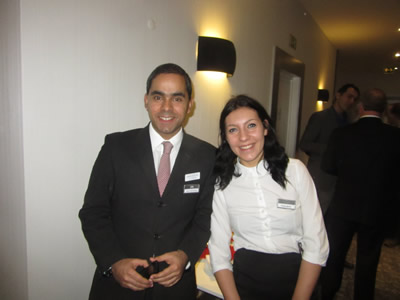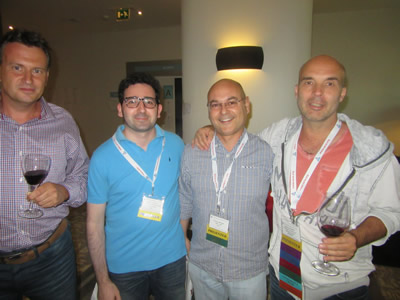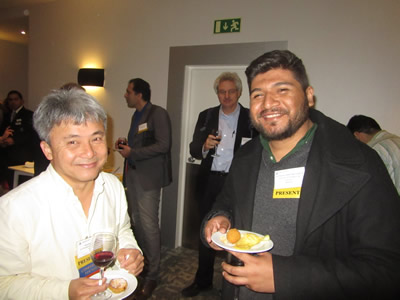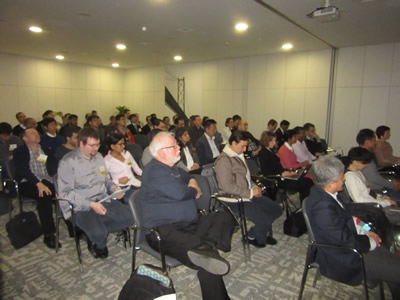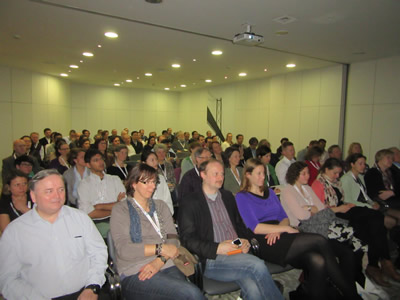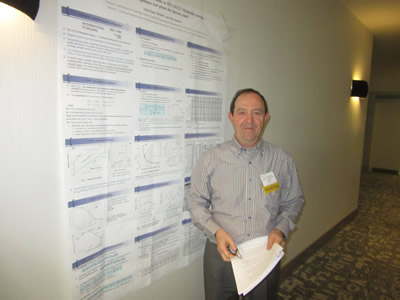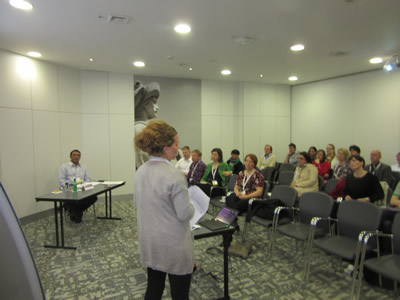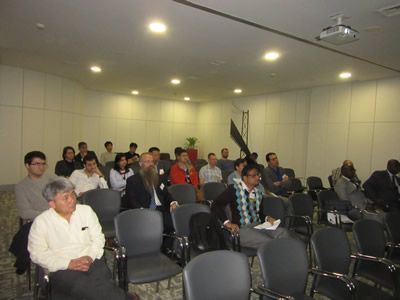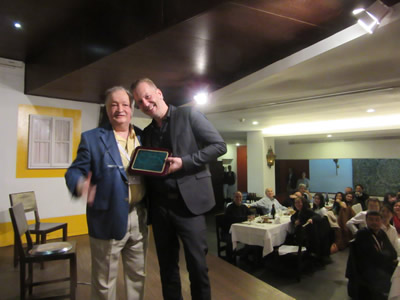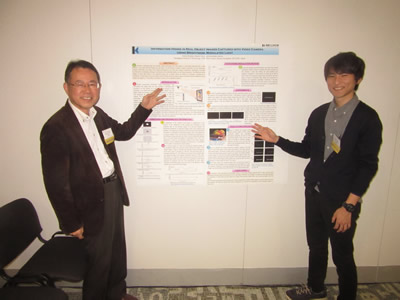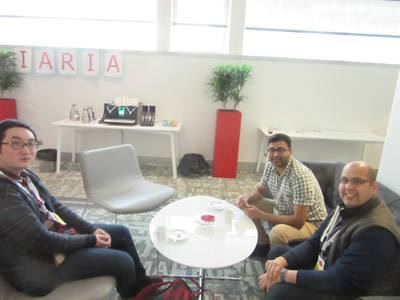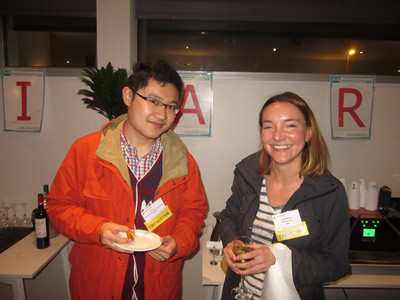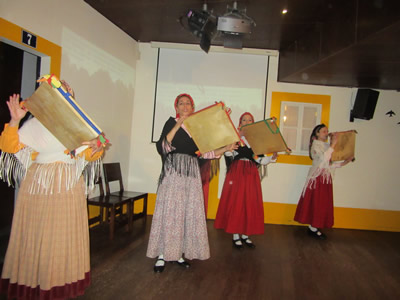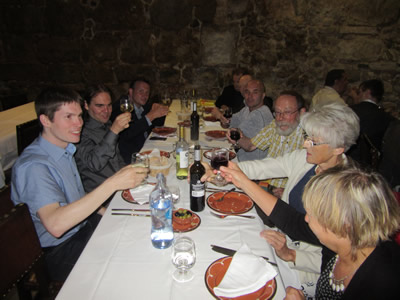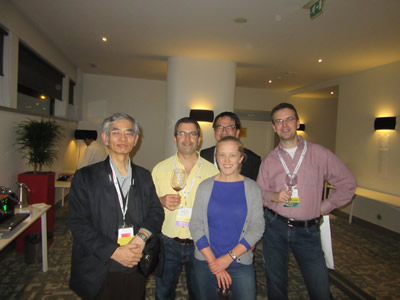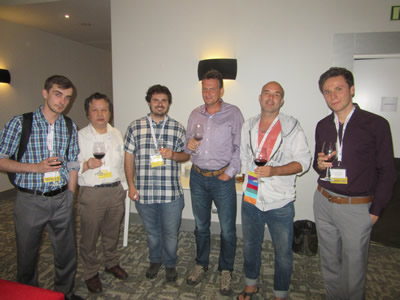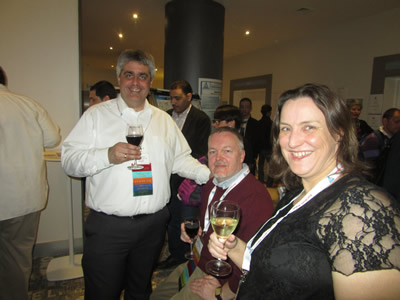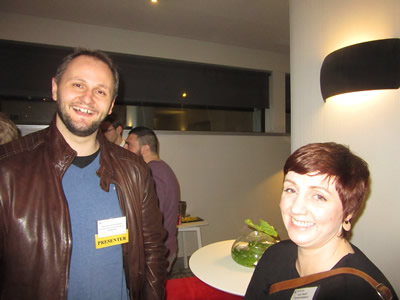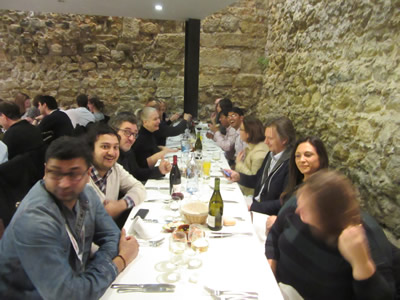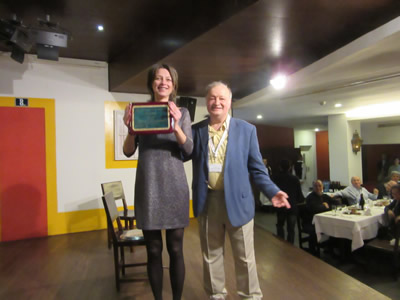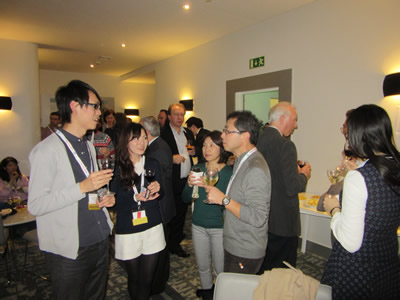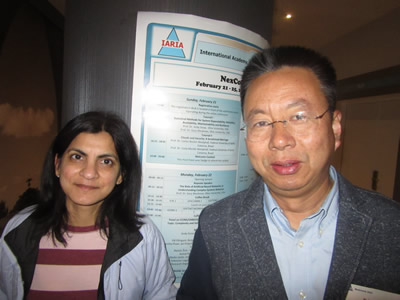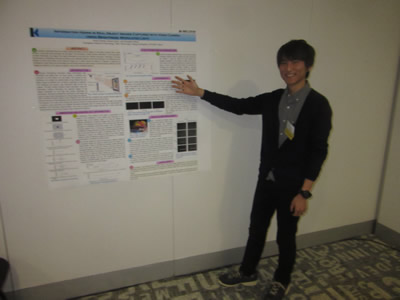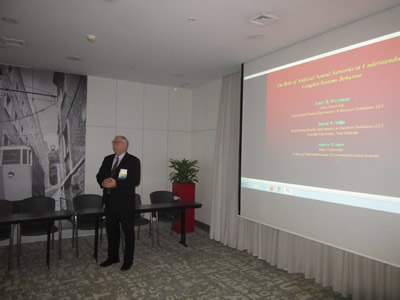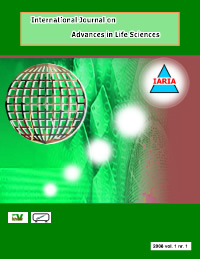HUSO 2025 - The Eleventh International Conference on Human and Social Analytics
March 09, 2025 - March 13, 2025
HUSO 2025: Call for Papers
Onsite and Online Options: In order to accommodate various situations, we are offering the option for either physical presence or virtual participation (pdf slides or pre-recorded videos).
The recent development of social networks, numerous ad hoc interest-based formed virtual communities, and citizen-driven institutional initiatives raise a series of new challenges in considering human behavior, both on personal and collective contexts.
There is a great possibility to capture particular and general public opinions, allowing individual or collective behavioral predictions. This also raises many challenges, on capturing, interpreting and representing such behavioral aspects. While scientific communities face now new paradigms, such as designing emotion-driven systems, dynamicity of social networks, and integrating personalized data with public knowledge bases, the business world looks for marketing and financial prediction.
HUSO 2025, The Eleventh International Conference on Human and Social Analytics, continues this event bridging the concepts and the communities dealing with emotion-driven systems, sentiment analysis, personalized analytics, social human analytics, and social computing.
We solicit both academic, research, and industrial contributions. We welcome technical papers presenting research and practical results, position papers addressing the pros and cons of specific proposals, such as those being discussed in the standard fora or in industry consortia, survey papers addressing the key problems and solutions on any of the above topics short papers on work in progress, and panel proposals.
Industrial presentations are not subject to the format and content constraints of regular submissions. We expect short and long presentations that express industrial position and status.
Tutorials on specific related topics and panels on challenging areas are encouraged.
The topics suggested by the conference can be discussed in term of concepts, state of the art, research, standards, implementations, running experiments, applications, and industrial case studies. Authors are invited to submit complete unpublished papers, which are not under review in any other conference or journal in the following, but not limited to, topic areas.
All topics and submission formats are open to both research and industry contributions.
HUSO 2025 conference tracks:
Hot topics in human and social analytics
Tendencies: Dynamic social networks; Affective computation; Knowledge computational engine for big data; Crowd emotions computation; Cooperation communities; Community evolution prediction; Discovering regional communities; Dynamic feedback mechanisms; Community structure detection; Predicting diffusion of preferences; Twitter communities; Microblogs; Influence for celebrities on microblogs; Sentiment analysis in the blogosphere; Data-mining twitter; Detection of persistent topics; Attraction similarity metric; Community influence ranking in social networks
Challenges: Community-based cheater detection; Spammer detection; Expert detection; Rumors detection; Understanding lurking behaviors; Detecting malicious clients; Trust patterns in ego networks; Cyberbullying behavior; Online anti-opinion spam; Detecting deception; Tracking in Twitter; Models of influence inflation in online social networks; Clearing contamination; Activity space-based crime location prediction; Trust antecedents frameworks and trust prediction; Overlapping community detection
Human Heritage Analytics
Cultural heritage analytics; Conservation; Reconstruction and restoration techniques; Preservation analytics; Historic linked data; Digital photos collection analytics; Industrial heritage analytics; Cityscapes analytics; Archeological analytics; Human habit and costumes analytics; Historical assets (coins, pottery, building architecture, traditions) analytics; 3D Digitalization and augmented virtual reality; Museums interactive exploration; Social media influence.
Emotion Basics
Modeling and capturing and representing online emotions; Knowledge representation and reasoning about emotions; Emotional behavior in human-computer interaction; Sentiment and emotion summarization and visualization; Emotional behavior modeling and ontologies; Capturing emotions in sounds and music computing; Expressing emotions in interactive entertainment; Expressing emotions in multimedia and multimodal systems; Emotional behavior in storytelling; Emotions in geographical and cultural heritage
Human interaction
Human-computer interaction; Natural user interfaces; Virtual and augmented reality (Google Glass, Hololens, etc. ); Multimedia and multimodal systems; Smart cities; Interaction design
Emotion-Driven Systems
Requirements engineering for emotions; Representation of emotionally-oriented requirements; Software design and programming of emotionally-oriented systems; Affective computing approaches to software development; Appropriation and deployment of emotionally-oriented systems; Software processes and practice for emotionally-oriented systems; Case studies relating information systems and emotions; Ethics in emotion-driven systems
Sentiment Analysis
Mining opinion with explicit/implicit, regular/ irregular, syntactical and semantic rules; Ontologies and knowledge bases for sentiment analysis; Baselines and datasets for semantic sentiment analysis; Concept-level sentiment analysis; Expressions with latent semantics; Sentiment-based indexing, search and retrieval in social networks; Subjectivity, sentiment and emotion detection in social networks; Evolution of sentiment within and across social media systems and topics; Topic based and entity based sentiment analysis; Semantic processing of social media for sentiment analysis; Comparison of semantic approaches for sentiment analysis; Prediction of sentiment towards events, people, organizations;
Social Human Analytics
Humanistic data collection and interpretation; Context-centric social multimedia discovery and collection; Semantic web technologies for subjectivity and social analysis; Social and expressive media corpora and annotations; Creative language (humor, irony, metaphor, etc.) in social networks; Dynamicity of social event detection; Social network and interaction analysis around places and events; Social media visualization and aggregation of places and events; Event-based and location-based storytelling using social media; Interactive social media applications; Sentiment and engagement analysis using social media; Mobile social networking applications; Collaborative multimedia content production; Social poor-quality arguments; Social fuzzy thinking; Online critical literacy; Linked argumented data; Complex annotation tools and interfaces; Linguistic variation and non-standard or historical use of language; Automatic creation of social semantic resources
Personalized Human Analytics
Mining personalized opinions; Individual versus collective behavior models; Data-driven profiling/ personalization; User modeling, personalization and linked data; Behavior and context prediction; Gesture recognition; Person-centric reasoning; Web access patterns analysis; Speech and audio data profiling; Personalized ontologies, ontology matching, and alignment; Personalized sentiment analysis; Connecting personalized opinions across blogs, social media, news sites; Balancing privacy/security/reliability/utility/usability of personal data; Multiple patterns extraction across personalized data; Integrating personalized data with public knowledge bases; Interactive dashboards of heterogeneous personalized data
Social Computing
Social applications, services and technologies; Social computing for citizen engagement; Smart cities and social computing; Urban knowledge and social computing for community participation; Social computing and quality of living; Social analytics and societal behavior for prediction and urban optimization; Social computing and social networks; Social computing and personalized behavior; Social Sensing; Humans and agents of social computing; Citizen incentive for social computing services
Human Web Interaction
Natural language interfaces; Keyword-based query interfaces; Hybrid query interfaces; Emotional behavior; Adaptive Web interfaces; Learning User Profiles; Personalized Interfaces; Remembrance Agents; Interaction visualization; Social and psychological challenges; (Agent-based) modeling of social systems and interactions; (Agent-based) simulation for social analysis
Deadlines:
Submission | Nov 22, 2024 |
Notification | Jan 06, 2025 |
Registration | Jan 19, 2025 |
Camera ready | Feb 02, 2025 |
Deadlines differ for special tracks. Please consult the conference home page for special tracks Call for Papers (if any).
INSTRUCTION FOR THE AUTHORS
Authors of selected papers will be invited to submit extended versions to one of the IARIA Journals.
Publisher: XPS (Xpert Publishing Services)
Archived: ThinkMindTM Digital Library (free access)
Prints available at Curran Associates, Inc.
How to submit to appropriate indexes.
Only .pdf or .doc files will be accepted for paper submission. All received submissions will be acknowledged via an automated system.
Contribution types
- regular papers [in the proceedings, digital library]
- short papers (work in progress) [in the proceedings, digital library]
- ideas: two pages [in the proceedings, digital library]
- extended abstracts: two pages [in the proceedings, digital library]
- posters: two pages [in the proceedings, digital library]
- posters: slide only [slide-deck posted on www.iaria.org]
- presentations: slide only [slide-deck posted on www.iaria.org]
- demos: two pages [posted on www.iaria.org]
FORMATS
Only .pdf or .doc files will be accepted for paper submission. All received submissions will be acknowledged via an automated system.
Final author manuscripts will be 8.5" x 11", not exceeding 6 pages; max 4 extra pages allowed at additional cost.
Helpful information for paper formatting for MS Word can be found here.
There is a community provided LaTeX template: the CTAN package iaria (with full IARIA formatting rules, including IARIA citation style, but for providing citation style it is tightly bound to pdflatex+biblatex+biber). In addition, there is also iaria-lite (not bound to pdflatex+biblatex+biber, but compatible with any TeX stack; thus, it cannot provide the IARIA citation formattings, but only the titlepage and content-related IARIA formatting rules). Based on the iaria package, there is a minimal working example as Overleaf template. When you are using the LaTeX templates, please still adhere to the additional editorial rules.
Slides-based contributions can use the corporate/university format and style.
Your paper should also comply with the additional editorial rules.
Once you receive the notification of contribution acceptance, you will be provided by the publisher an online author kit with all the steps an author needs to follow to submit the final version. The author kits URL will be included in the letter of acceptance.
We would recommend that you should not use too many extra pages, even if you can afford the extra fees. No more than 2 contributions per event are recommended, as each contribution must be separately registered and paid for. At least one author of each accepted paper must register to ensure that the paper will be included in the conference proceedings and in the digital library, or posted on the www.iaria.org (for slide-based contributions).
CONTRIBUTION TYPE
Regular Papers (up to 6-10 page article -6 pages covered the by regular registration; max 4 extra pages allowed at additional cost- ) (oral presentation)
These contributions could be academic or industrial research, survey, white, implementation-oriented, architecture-oriented, white papers, etc. They will be included in the proceedings, posted in the free-access ThinkMind digital library and sent for indexing. Please submit the contributions following the instructions for the regular submissions using the "Submit a Paper" button and selecting the appropriate contribution type. 12-14 presentation slides are suggested.
Short papers (work in progress) (up to 4 pages long) (oral presentation)
Work-in-progress contributions are welcome. These contributions represent partial achievements of longer-term projects. They could be academic or industrial research, survey, white, implementation-oriented, architecture-oriented, white papers, etc. Please submit the contributions following the instructions for the regular submissions using the "Submit a Paper" button and selecting the contribution type as work in progress. Contributors must follow the conference deadlines, describing early research and novel skeleton ideas in the areas of the conference topics. The work will be published in the conference proceedings, posted in the free-access ThinkMind digital library and sent for indexing. For more details, see the Work in Progress explanation page. 12-14 presentation slides are suggested.
Ideas contributions (2 pages long) (oral presentation)
This category is dedicated to new ideas in their very early stage. Idea contributions are expression of yet to be developed approaches, with pros/cons, not yet consolidated. Ideas contributions are intended for a debate and audience feedback. Please submit the contributions following the instructions for the regular submissions using the "Submit a Paper" button and selecting the contribution type as Idea. Contributors must follow the conference deadlines, describing early research and novel skeleton ideas in the areas of the conference topics. The work will be published in the conference proceedings, posted in the free-access ThinkMind digital library and sent for indexing. For more details, see the Ideas explanation page. 12-14 presentation slides are suggested.
Extended abstracts (2 pages long) (oral presentation)
Extended abstracts summarize a long potential publication with noticeable results. It is intended for sharing yet to be written, or further on intended for a journal publication. Please submit the contributions following the instructions for the regular submissions using the "Submit a Paper" button and selecting the contribution type as Extended abstract. Contributors must follow the conference deadlines, describing early research and novel skeleton ideas in the areas of the conference topics. The work will be published in the conference proceedings, posted in the free-access ThinkMind digital library and sent for indexing. 12-14 presentation slides are suggested.
Posters (paper-based, two pages long) (oral presentation)
Posters are intended for ongoing research projects, concrete realizations, or industrial applications/projects presentations. The poster may be presented during sessions reserved for posters, or mixed with presentation of articles of similar topic. A two-page paper summarizes a presentation intended to be a POSTER. This allows an author to summarize a series of results and expose them via a big number of figures, graphics and tables. Please submit the contributions following the instructions for the regular submissions using the "Submit a Paper" button and selecting the contribution type as Poster Two Pages. Contributors must follow the conference deadlines, describing early research and novel skeleton ideas in the areas of the conference topics. The work will be published in the conference proceedings, posted in the free-access ThinkMind digital library and sent for indexing. 8-10 presentation slides are suggested. Also a big Poster is suitable, used for live discussions with the attendees, in addition to the oral presentation.
Posters (slide-based, only) (oral presentation)
Posters are intended for ongoing research projects, concrete realizations, or industrial applications/projects presentations. The poster may be presented during sessions reserved for posters, or mixed with presentation of articles of similar topic. The slides must have comprehensive comments. This type of contribution only requires a 8-10 slide-deck. Please submit the contributions following the instructions for the regular submissions using the "Submit a Paper" button and selecting the contribution type as Poster (slide-only). The slide-deck will be posted, post-event, on www.iaria.org.
8-10 presentation slides are suggested. Also a big Poster is suitable, used for live discussions with the attendees, additionally to the oral presentation.
Presentations (slide-based, only) (oral presentation)
These contributions represent technical marketing/industrial/business/positioning presentations. This type of contribution only requires a 12-14 slide-deck. Please submit the contributions following the submission instructions by using the "Submit a Paper" button and selecting the contribution type as Presentation (slide-only). The slide-deck will be posted, post-event, on www.iaria.org.
12-14 presentation slides are suggested.
Demos (two pages) [posted on www.iaria.org]
Demos represent special contributions where a tool, an implementation of an application, or a freshly implemented system is presented in its alfa/beta version. It might also be intended for thsoe new application to gather the attendee opinion. A two-page summary for a demo is intended to be. It would be scheduled in special time spots, to ensure a maximum attendance from the participants. Please submit the contributions following the submission instructions by using the "Submit a Paper" button and selecting the contribution type as Demos. The Demos paper will be posted, post-event, on www.iaria.org.
Tutorial proposals
Tutorials provide overviews of current high interest topics. Proposals should be for 2-3 hour long. Proposals must contain the title, the summary of the content, and the biography of the presenter(s). The tutorial slide decks will be posted on the IARIA site.
Please send your proposals to tutorial proposal
Panel proposals
The organizers encourage scientists and industry leaders to organize dedicated panels dealing with controversial and challenging topics and paradigms. Panel moderators are asked to identify their guests and manage that their appropriate talk supports timely reach our deadlines. Moderators must specifically submit an official proposal, indicating their background, panelist names, their affiliation, the topic of the panel, as well as short biographies. The panel slide deck will be posted on the IARIA site.
Please send your proposals to panel proposal
